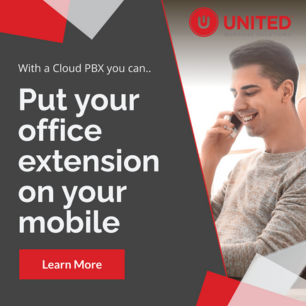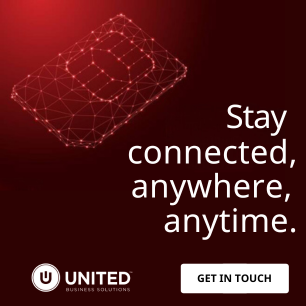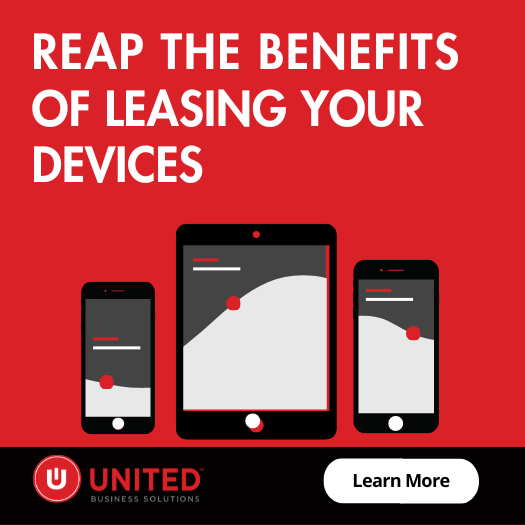Cloud Hosted PBX Systems, On-premise PBX Resources
Ultimate Guide to PBX/PABX Systems in South Africa
Let’s explore what you need to know about PBX systems in South Africa.
A PBX system is responsible for managing all of your business’ voice communications, and to choose the right PBX system, you need to learn about PABX/PBX systems, how they work, the types of PABX systems available, their benefits, price and how they suit your needs.
Read on to find out more.
- What is a PABX or PBX system?
- What are the types of PBX systems available for businesses?
- Benefits of PABX systems
- Determining the price of PBX systems
- How to pay for your new or refurbished PABX/ PBX System?
- Final thoughts on PABX systems in South Africa
What is a PABX or PBX system?
A PBX/PABX is a telephony management solution for businesses and companies that require many lines for internal and external calls. Incoming calls on a single (or multiple lines) can be routed to different internal extensions resulting in cost saving for companies requiring fewer lines and simplifying customer experience.
The PBX/PABX system acts as the switch connecting incoming calls with the desired person via their dedicated extension number. A PABX system is often owned and administered by the company hosting it and many call centres and large enterprises use PABX systems. Common features include auto attendant, call conferencing, call hold, and call transfer.
PABX vs PBX – what’s the difference?
Let’s discuss the terms PABX system and PBX system as they are often discussed interchangeably and both hold their own history in the commercial telecommunications world.
PBX which stands for Private Branch Exchange is the term used to describe manual call routing via a switchboard by manually unplugging and plugging the line into the correct extension. When automatic switching came about, the need for manual operators disappeared and the PABX was born.
PABX stands for Private Automated Branch Exchange and is essentially identical to a PBX system, but with automatic switching.
Since manual switching is essentially phased out, the terms PBX and PABX can be used interchangeably.

What are the types of PBX systems available for businesses?
There are a few main types of PABX systems that can be integrated to manage your business’ voice communications and offer a range of necessary and additional features.
On-premise analogue PBX systems
On-premise analogue PBX systems are installed and managed on-site using analogue phone lines (These are typically considered to be Telkom Copper lines in South Africa), network infrastructure, and physical PBX hardware at the office to connect extensions to a main switchboard.
Analogue PBX systems demand a higher upfront installation cost and/or more expensive running costs.
Traditional PBX systems may support a range of features, however, physical hardware is required to manage some of the most essential functionalities associated with phone systems, such as call routing, recording, auto-attendants and more.
Cloud PBX systems
Cloud PABX systems, also known as hosted PABX systems, rely on VoIP and are managed entirely off-premise, in the cloud and accessed via the internet.
Cloud-based PBX systems require minimal hardware, as voice communications can be managed using a software solution or peripherals like IP handsets. The main costs are related to your network infrastructure, the number of extensions you require and your team’s usage patterns.
With hosted PBX systems, a variety of features you would expect of an advanced system are natively available and managed in the cloud, from call recording and routing to interactive voice response and more.
Hybrid PBX systems
Hybrid PBX systems refer to any combination of on-premise analogue PBX and cloud based PBX technology. Hybrid PBX systems are a great solution for those who are looking to upgrade and modernise their analogue PBX systems, but cannot go fully cloud based due to security or connectivity concerns.
Hybrid PBX systems still require a higher installation cost as compared to hosted PBX solutions, as some hardware components are installed on-site. Existing hardware needs assessment for compatibility (including the cost of license agreements) when being converted to support VoIP.
Monthly running costs may include hardware, usage patterns, network infrastructure and more.
However, a wider range of communication features can be enabled using VoIP technology, and managed without requiring some physical hardware components associated with analogue phone systems.
Benefits of PBX systems
PBX systems are responsible for managing all of your voice communications. They enable the management of external and internal communications and can be equipped to perform a range of features that help businesses streamline their communications.
The benefits associated with types of PBX systems vary, so we cover the core advantages of PBX systems below.
1. Manage external communications
PBX systems enable you to make calls to external numbers or receive calls from external numbers. PBX systems may rely on either analogue lines, VoIP or both to enable businesses to manage their voice communications.
PBX systems are equipped to manage the switching from external calls to internal extensions. PBX systems allow businesses to handle multiple incoming calls and extensions simultaneously.
Depending on the type of PBX system installed, a business can benefit from a range of additional features to help them manage calls from external numbers for example call waiting, call holding, custom greetings, and more.
2. Manage internal communications
PBX systems can support a certain number of extensions, which can be used for client contact, but also to connect users on the same team to communicate with one another.
This helps businesses enhance their productivity and collaboration as a team member is only a few digits away. Standard or advanced voice communication features, like call conferencing, can also be enabled and further improve internal voice communications.
3. Connect to a range of devices
Depending on the type of PBX system you have, PBX systems can be connected to corded or cordless phones, desk phones, computers, mobile devices and more.
This provides centralisation and collaboration within a business setting. For example, depending on the type of PBX system you choose, you can connect to devices to help you manage your communications including analog handsets, digital handsets, IP phones, laptops, mobile devices and more.
4. Analytics and cost monitoring
PBX systems are usually equipped with tools for monitoring usage, call duration and other key aspects related to a business’ voice communications.
This enables companies to keep track of usage and align with their budget constraints, while also finding areas of improvement when it comes to the way in which they manage both internal and external voice communications.
5. Standard and advanced features for managing communications
The type of PBX system you install will determine the range of features a business can use to manage its voice communications.
Standard features and advanced features you can expect from PBX systems include, but are not limited to
- Caller ID
- Call routing
- Call transfer
- Call waiting
- Call reporting and analytics
- Audio conferencing
- Call encryption
- Voicemail
- Custom greetings
- Blocklist
- Allowlist
- Contact directory
- Call queue

Determining the price of PABX systems
The price of a PBX system can be estimated based on a variety of factors.
In another post we cover the factors that affect PBX system price, however, to summarise these aspects:
Team size and extensions
The size of your team and the number of extensions you require are important factors to consider.
With analogue and hybrid PBX systems, your main unit will need to accommodate the number of extensions you require, which will incur physical installation costs.
With cloud based PBX systems, VoIP packages are often based on the number of extensions you require and extensions can be added or removed online with a few clicks.
Existing or new PBX system configuration and hardware requirements
When expanding a traditional phone system to suit your business demands, a business may rely on phone lines, cabling and other PBX hardware and peripherals, which can influence the cost of your solution.
Hybrid systems involve integrating existing hardware with VoIP technology to provide increased flexibility and features, as well as scalability.
Or you may choose a cloud PBX system which requires the least hardware and you can choose to manage calls using a softphone extension or IP phones, which will factor into the cost of the solution.
Features and integrations
Businesses may also be able to connect their PBX systems with software solutions for managing calls, or customers and their queries (such as CRMs).
Depending on your PBX system, there may be costs associated with enabling standard and advanced features for managing calls or connecting to software solutions. This may involve installing hardware on-site, or these features may be cloud-hosted.
Service provider costs and call rates
There are recurring costs associated with different types of PBX systems, and depending on the type of PBX system you implement, these costs may vary.
For example, with traditional PBX systems, the rental fees associated with analogue lines and hardware components are important considerations. Call rates are also typically higher than PBX systems that rely on VoIP to perform voice communications.
Whereas for cloud-based PBX systems, the cost of extensions and usage are primary factors and the hardware requirements to complete the solution are often as simple as installing a router and cabling.
Maintenance and support costs
Maintenance is important to provide a maximum level of uptime.
On-site PBX systems are likely to require physical on-site service to ensure your phone system is reliable and efficient. Hosted PBX systems will require dedicated remote support.
The cost associated with maintenance will vary and is a crucial component in the total cost of your PBX system during its lifespan.
Average Price of On-Premise PBX Systems
| PBX System Size | On-Site PBX Outright Purchase Price* (ex VAT) | On-Site PBX Monthly Rental Price* (ex VAT) |
|---|---|---|
| Small PBX System (1 – 20 Extensions) | R 16 000.00 – R 54 200.00 | R 600.00 – R 1 990.00 |
| Medium PBX System (21 – 50 Extensions) | R 57 980.00 – R 106 500.00 | R 2 120.00 – R 3 795.00 |
| Large PBX System (51 – 100 Extensions) | R 106 500.00 – R 215 000.00 | R 3 795.00 – R 7655.00 |
| Enterprise PBX System (100 + Extensions) | R 215 000.00 + | R 7 655.00 + |
Average Price of Cloud PBX Systems
| PBX System Size | Cloud PBX Monthly Subscription Costs* (ex VAT) | Cloud PBX Monthly Rental Price (over 36 months)* (ex VAT) |
|---|---|---|
| Small PBX System (1 – 20 Extensions) | R 135.00 – R 1 450.00 | R 190.00 – R 1 200.00 |
| Medium PBX System (21 – 50 Extensions) | R 1 505.00 – R 3 400.00 | R 1 200.00 – R 2 540.00 |
| Large PBX System (51 – 100 Extensions) | R 3 455.00 – R 5 500.00 | R 2 540.00 – R 4 720.00 |
| Enterprise PBX System (100 + Extensions) | R 5 555.00 + | R 4 720.00 + |

How to pay for your new or refurbished PABX/PBX System?
A PABX/PBX system is a major investment for any business and can be a vital tool for their day-to-day functioning. To help make your life easier, United Telecoms offers 3 simple easy purchasing methods:
PABX Rentals/Hires
The most popular method is to rent the PABX system, for a detailed explanation browse through to our page on PABX/PBX rentals and the advantages to renting a PABX system. Renting provides the advantage of reducing the upfront cost to preserve cash flow, but does mean that you’ll have a monthly commitment and specified contract period that you are locked into.
EFT/Cash Payment
After an expert consultation and sign off we will send you a Pro Forma Invoice to make payment on and get the ball rolling.
Credit Card Payment
As a leading South African PABX systems integrator we supply credit card payment options for those wishing to use this method of payment for your PABX System. Please request this from your consultant or use our online check out process.
Final thoughts on PBX systems in South Africa
Let’s wrap up with some final thoughts on PBX systems.
A PBX phone system needs to suit your exact needs when it comes to voice communication and may depend on your existing PBX hardware, network infrastructure, and usage patterns.
There are a few different types of PBX systems to choose from that we’ve discussed in our post, whether it’s an analogue PBX system, hybrid VoIP PBX system or a cloud PBX system.
Each type of PBX system provides its own user experience, range of benefits, and costs associated which vary with installation, operation or maintenance required for each system.
Furthermore, PBX systems can be purchased upfront or leased over a fixed term and may be brand new or refurbished systems.
We would recommend that you contact us to get expert advice to help you determine the best PBX solution for your business and its communication needs.
If you’d like to learn more about PBX, you can explore the factors that influence PBX system price, our guide to Yeastar VoIP PBX Systems, and the differences between cloud PBX and VoIP.








Got questions? Contact our experts today.
We service the following locations in South Africa
Western Cape: Cape Town, Belville, Paarl, Stellenbosch, Somerset West, Vredendal, Hout Bay, Green Point, Bloubergstrand, Durbanville, Melkbosstrand.
Eastern Cape: Port Elizabeth, Knysna, East London, George.
Kwa-Zulu Natal: Durban, Pinetown, Ladysmith, Newcastle, Ballito, Port Shepstone, Pietermaritzburg, Umhlanga, Westville, Hillcrest, Amanzimtoti.
Gauteng: Johannesburg, Vereeniging/Vaal, Sandton, Midrand, Pretoria, Centurion, Randburg, Roodepoort, Germiston, Alberton, Edenvale, Menlo Park.
Free State: Bloemfontein, Welkom, Bethlehem.
Mpumalanga: Witbank, Nelspruit.
Northern Cape: De Aar, Kimberley, Repra (Upington Area).
North West: Klerksdorp, Mafikeng.
Limpopo: Phalaborwa, Polokwane/Pietersburg.
Outside South Africa: Botswana, Zimbabwe, Swaziland, Namibia, Mozambique.
What Our Customers Say
“Once we approved the installations we were kept up to date daily with the levels of progress on our various sites and were very impressed with the final installation”
Spear Properties
Get In Touch
Head Office
19 Trinity Close
Cambridge Commercial Park
Paulshof
Sandton
Tel: 086 001 8500
Email: info@unitedtelecoms.net
6 Edison Way
Century City
Cape Town
Tel: 086 001 8500
Email: info@unitedtelecoms.net
12 Sookhai Place
Derby Downs Office Park
Westville
Tel: 086 001 8500
Email: info@unitedtelecoms.net
We're the experts so that you don't need to be!
PBX Phone System
Beginner's Guide
Voice & Hosted PBX
Resources
PABX Relocation and
Reinstallation
PBX Phone System
Resources